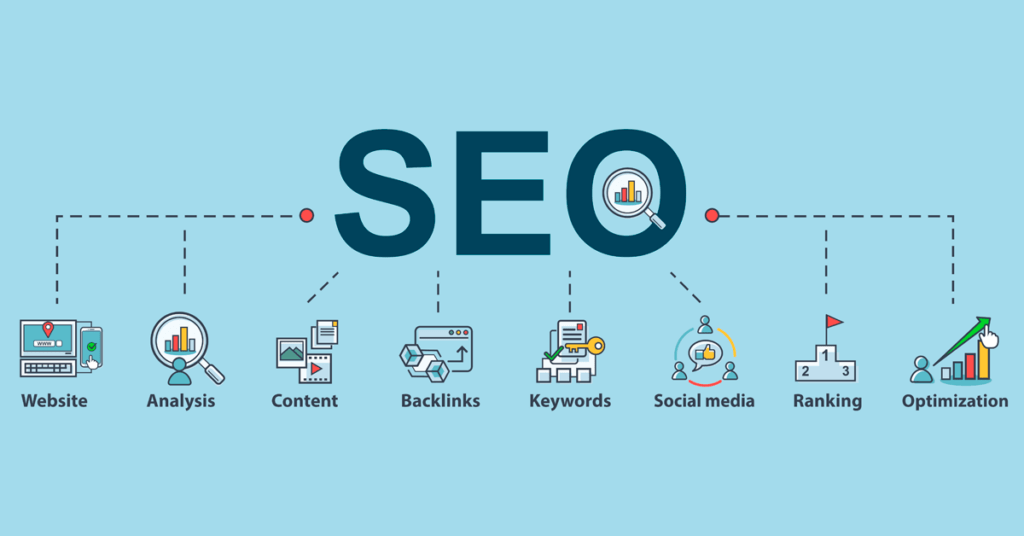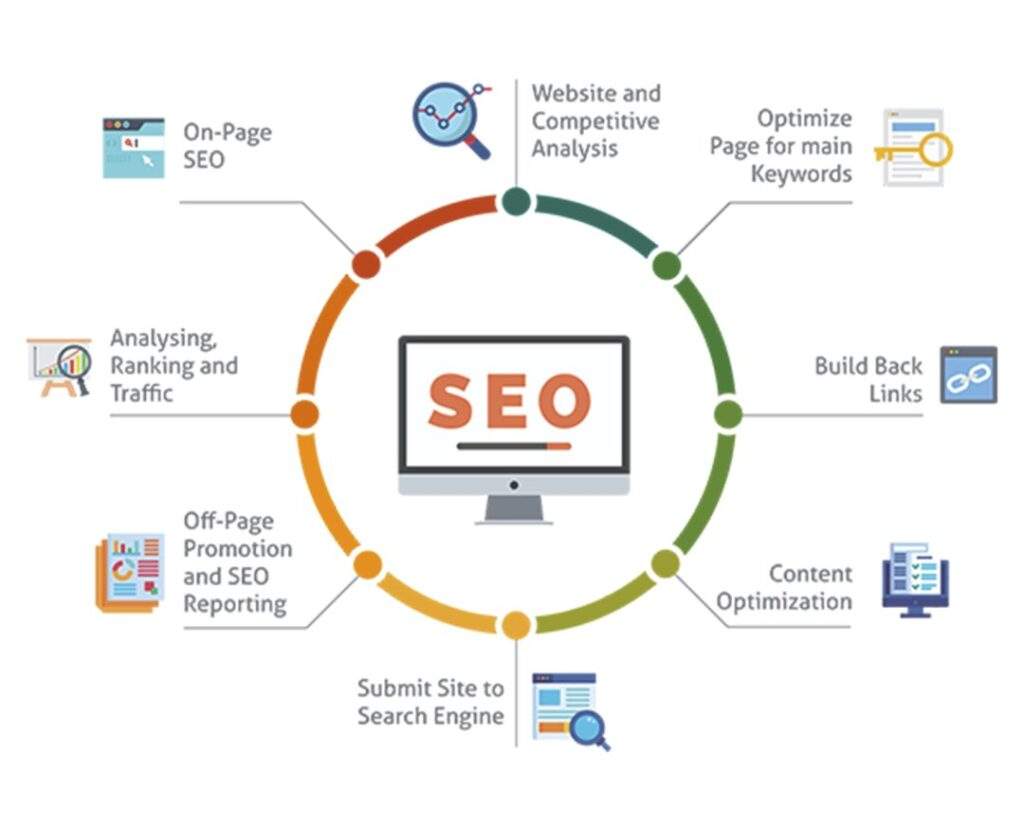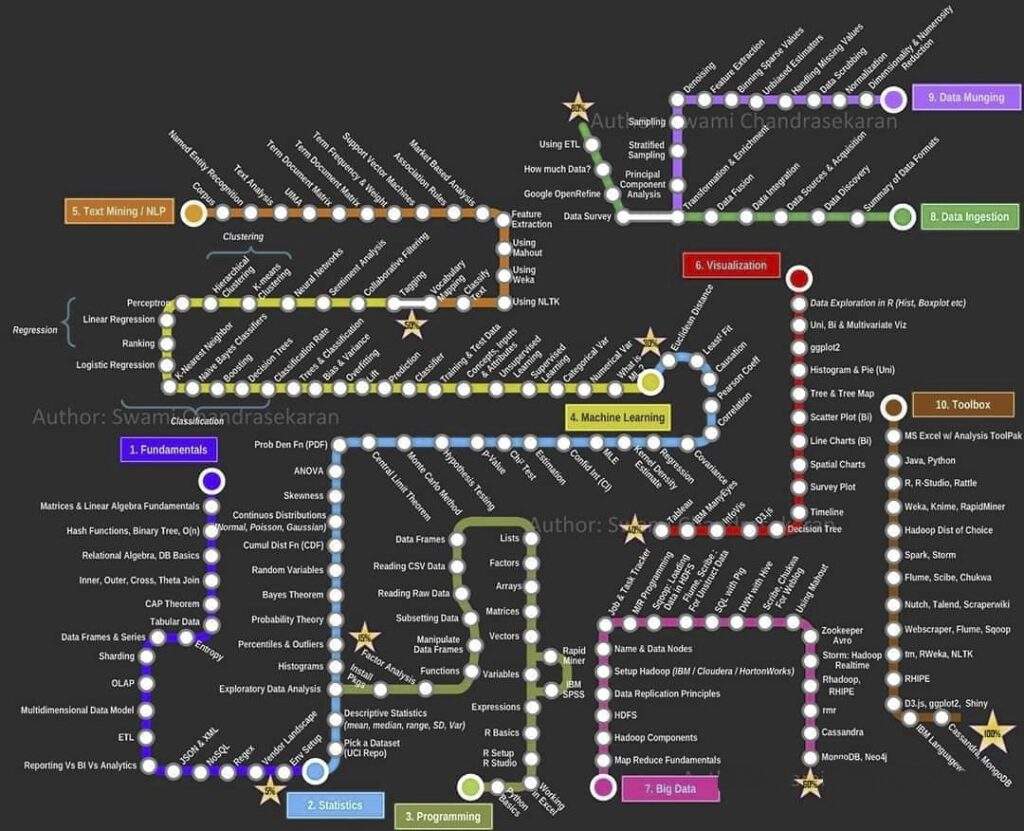In today's digital age, search engine optimization (SEO) has become a key factor for many businesses and organizations to succeed on the internet. By using the right methods and strategies, you can bring more traffic and higher rankings to your website through SEO.

Here are some useful tips and tricks to help you optimize your SEO and improve your rankings:
Keyword Research
By understanding your audience and their search behavior, you can find the right keywords to optimize your website content. Use keyword tools to find meaningful keywords to use in your content.
Keyword research is the process of identifying the most relevant and valuable keywords and phrases related to your business. By using the right keywords in your website’s content, you can increase your chances of ranking higher in SERPs. Start by using keyword research tools like Google Keyword Planner or SEMrush to find the best keywords for your website.
Page Optimization
Ensure that your website is accessible, easy to navigate, and easy to read. Optimize page speed and performance to improve user experience and search engine rankings.
Optimizing your website involves making it more search engine friendly. Some of the essential on-page SEO elements you need to focus on include:
- Title tags and meta descriptions
- Headings and subheadings
- Image alt tags
- URL structure
- Internal and external linking
Make sure your website is user-friendly, loads quickly, and is mobile-friendly. Google prioritizes user experience, so ensure your website is easy to navigate and find relevant information.
Page speed is a critical factor for SEO. Slow-loading pages can negatively impact user experience and result in lower search engine rankings. To improve your website’s page speed, you can compress images, use a content delivery network (CDN), and reduce the
number of plugins and scripts on your website.
Content Creation
Create valuable, engaging, and useful content to attract and retain your audience. Ensure that your content is original to improve search engine rankings.
High-quality content is an essential component of SEO. Create content that is informative, engaging, and relevant to your target audience. Use keywords naturally and focus on
creating content that answers the search intent of your target audience. This can include blog posts, infographics, videos, and other types of content.
Social Media
Utilize social media platforms to attract more traffic and improve search engine rankings. Build connections between your brand and users through sharing and interaction.
Social media platforms like Facebook, Twitter, LinkedIn, and Instagram can help drive traffic to your website and improve your SEO ranking. Share your blog posts and other content on your social media accounts and encourage your followers to share it with their networks. This can increase your website’s visibility and help build backlinks to your website.
Social media platforms like Facebook, Twitter, LinkedIn, and Instagram can help drive traffic to your website and improve your SEO ranking. Share your blog posts and other content on your social media accounts and encourage your followers to share it with their networks. This can increase your website’s visibility and help build backlinks to your website.
Internal Linking
Use internal links to connect related pages on your website. This can improve your website's usability and help search engines understand the structure of your website.
External Linking
Build high-quality external links to improve your website's ranking. Link to high-quality websites to improve your credibility and ranking.
Backlinks are links from other websites that point to your website. They are a crucial ranking factor for SEO. Focus on building high-quality backlinks from authoritative websites within your niche. This will improve your website’s authority and relevance, which can result in higher rankings in SERPs.
Mobile Optimization
Optimize your website to adapt to mobile devices. Ensure that your website is easy to use and navigate and performs well on mobile devices.
Google prioritizes user experience, so it’s essential to focus on creating a website that is easy to use and provides value to your target audience. This can include optimizing your website for mobile devices, improving website navigation, and ensuring that your website’s content is relevant and informative.
Data Analysis
Use data analysis tools to monitor your website's performance and improve your SEO strategy. Understand your website's traffic sources and which keywords and pages are most popular.
Finally, it’s essential to keep an eye on your competitors’ SEO strategies. Use tools like SEMrush or Ahrefs to analyze your competitors’ websites and identify their strengths and weaknesses. Use this information to adjust your SEO strategy and stay ahead of the competition.
Conclusion
By using these tips and tricks, you can improve your SEO rankings and bring more traffic and higher rankings to your website. However, remember that SEO is a long-term job that requires continuous updating and improvement.




